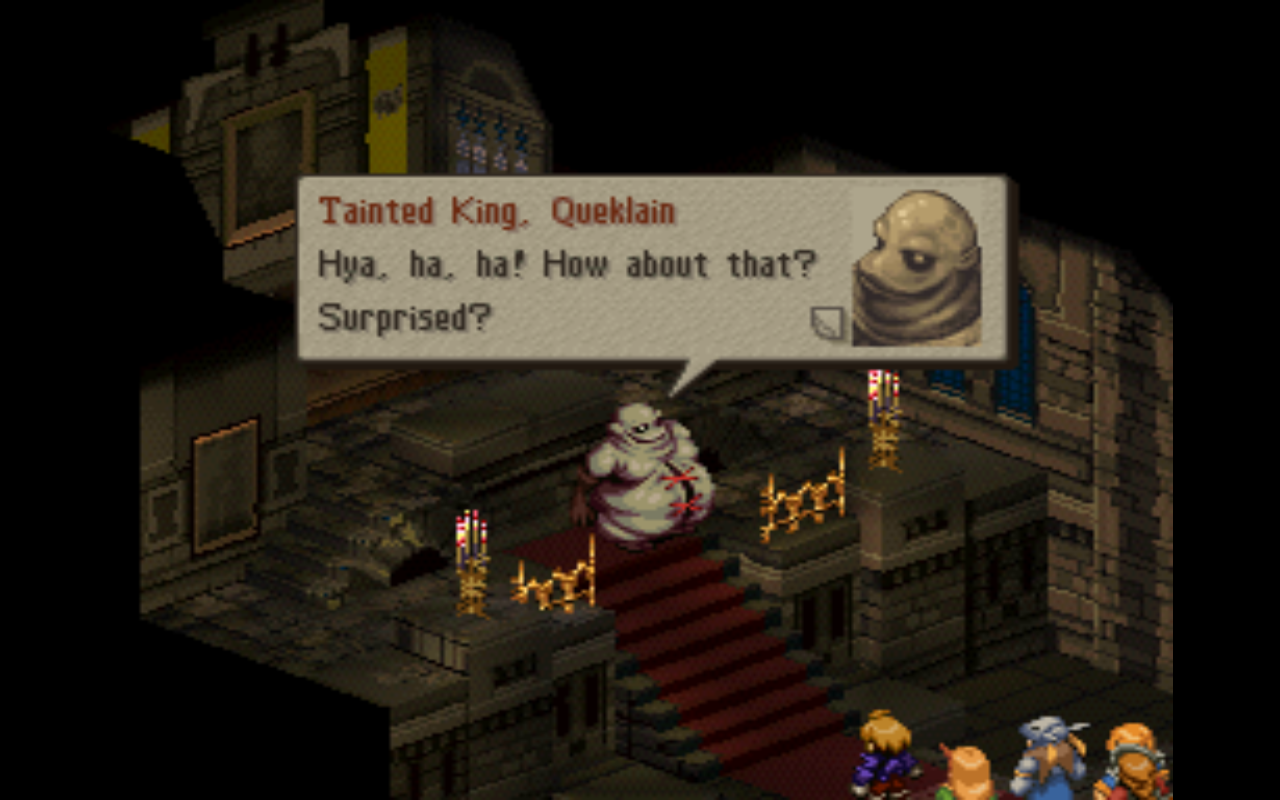doing “killing god” properly
“murder the gods and topple their thrones” is kind of a recurring narrative in JRPGs and Final Fantasy specifically — see FFX — mostly because it allows you to raise the narrative stakes to such a highly absurd level that your aesthetics can reasonably go somewhere like this

VENI VENI VENIAS / NE ME MORI FACIAS
final fantasy 7 is actually kind of an interesting example because it’s not really about killing God at all, but instead “killing a guy/entity who imagines itself to be God for the sake of the planet it’s killing”. that sephiroth appears this way in the final battle has more to do with how sephiroth/jenova thinks of itself; it’s a nice bit of visual characterization and abstract storytelling
anyway final fantasy tactics does ask you to kill God — or more accurately it asks you to kill Jesus and his disciples. the way it seeds this narrative in from the beginning, but doesn’t unleash the true twist until the end of the second act, is in my opinion one of the great narrative gambits I’ve encountered in a game of this genre.
yes there are chocobos and goblins and skeleton bullmen but until ramza and co. encounter count draclau, the church is portrayed entirely as a neutral and largely benevolent observer to the bloody war in progress. st. agrias and the lucavi exist as biblical fluff, something you say before your amens; maybe there was a st. agrias but let’s not get so literal about our theological adaptation, etc
religion and faith are frontloaded but in more thematic and characterizing terms. ovelia is a ward of the church, which is a potential harmful institution at large but shown to have plenty of sympathetic figures () and a positive role to play in the world. faith runs throughout the story from the beginning, but not just along theological lines: faith in family, faith in the stories you tell yourself about who you are and how society functions around you, faith in other people. ramza and delita are the yin/yang of this: ramza believes wholeheartedly and even through long periods where he should probably have that belief broken; delita exploits the societal norms that such faith creates to craft his own story in the most cynical way possible, because there’s nothing else left for him by the end. (weigraf, and the death corps in general, forms another bit of contrast to all this)
anyway none of this would be out of place in like a Shakespeare play or some other bit of historical fiction; it uses institutions and societal expectations and class structures to tell a compelling story of the ways in which individuals can or cannot influence the worlds they inhabit, especially in times of greatest history-making turmoil and flux
and then:

yes, man! yes I am! damn!!
the fact that in the world of Ivalice, the religious conspiracy is real but also not acknowledged in any way by recorded history (except the banned Durai Texts that form the pretext for the story itself) is the real masterstroke. it feeds back into the overarching story in a way that never disrupts the “historical” account of what took place, never makes delita’s schemes feel silly or insignificant by comparison (because how could he possibly believe this shit ramza is saying), never throws the game into tonal chaos.
plus the lucavi transformation visual and musical theme absolutely whips. more on that in a bit